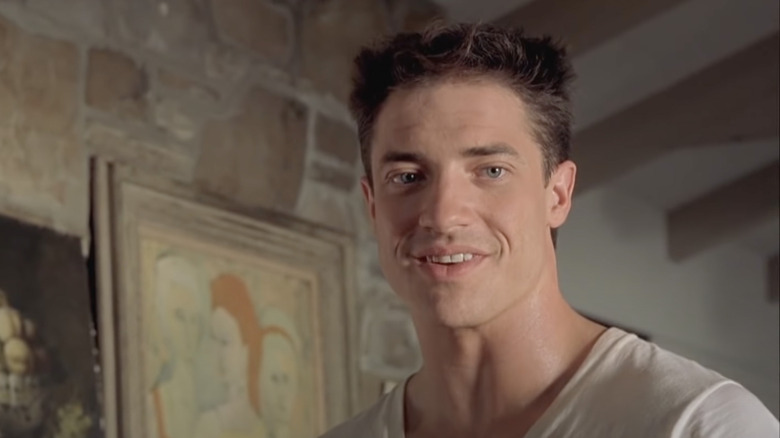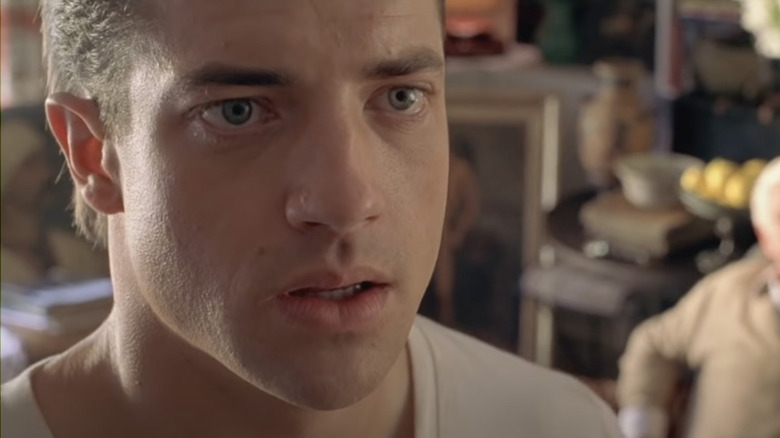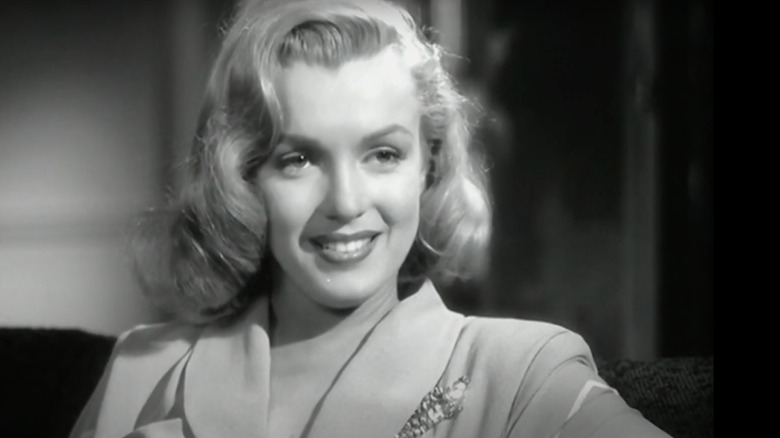Brendan Fraser's Acting Talent Reminded Ian McKellen Of Marilyn Monroe
The majority of us '90s babies spent a lot of time in front of the television. Say what you will about the boob tube and its lasting effects on our brains (and according to our mothers, our eyes), my generation's heart absorbed most of the television's influence. "Hocus Pocus," "Matilda," "Mrs. Doubtfire," "The Sandlot," and "The Mighty Ducks" are all gems from my generation's golden era. Even as a grown woman, I'm totally engrossed by these films, and believe they stand the harsh test of time.
Along with an everlasting love for the movies, '90s babies also fell for a lot of those characters and the actors who played them. Of course, we realized that they were movie stars, but deep down in the cockles of our hearts, they felt like friends. One great '90s actor who is beloved by fans is Brendan Fraser.
Fraser began his career playing wide-eyed innocents with a naive charm like George in "George of the Jungle" and Link in "Encino Man," but he became an action star playing Rick O'Connell in "The Mummy" franchise. He won our cheers throughout the '90s and 2000s by swinging from vines and rescuing his beloved from a desiccated mummy, but his kindness and modesty off-screen won our hearts. However, Hollywood frequently pigeonholed him into simpleton roles or exploited his body. Only recently have they begun to accept his talents.
In case you haven't heard, Fraser's performance in "The Whale" recently earned him a standing ovation at The Venice Film Festival, but the internet has been calling for a Fraser comeback for years. For those of you who might dismiss the actor as a gimmick or a has-been, Ian McKellan compared Fraser's on-screen abilities to those of Marilyn Monroe.
Gods and Monsters
Immediately following his stint in the jungle, Brendan Fraser appeared in "Gods and Monsters," a biopic about James Whale, the director of "Frankenstein," "The Invisible Man," and "Bride of Frankenstein." "Gods and Monsters" is a fictionalized account of the filmmaker's final days, a man who was openly gay in Hollywood when it was more prudent to stay in the closet. According to the film, after a life of flings, the director's golden years are spent lusting after Clayton Boone (Fraser), who he hires as a landscaper. After an awkward attempt at seduction, Boone rejects Whale and the former director commits suicide.
The ending is bleak, but the film's main focus is the friendship between Whale and Boone, which reminds the aged man of his first love and Hollywood career. Instead of falling into the hot gardener stereotype, Fraser's performance is one of tenderness, which makes Whale's loneliness and depression devastating to watch. The film was a huge step away from the typical Fraser film of the '90s, but it earned critical praise and an Academy award.
Upon the film's release, Ian McKellan received a lot of the initial praise, but the classically trained actor lauded Fraser in The New York Times, saying:
"I didn't appreciate Brendan's performance while it was happening. I've talked to somebody who worked with Marilyn Monroe and he said the same of her. You could only see it through the camera or on the screen."
The comparison may raise some eyebrows, but there may be some truth to it.
Fraser and Monroe
Throughout the '90s and 2000s, Fraser frequently played seemingly simple characters that earned easy laughs with naivety and innocence. Simultaneously, the 6'2" muscle-bound actor was often shirtless and greased up while playing the simpleton. In short, Fraser's handsome fools were the male equivalent of the blonde bombshell that Monroe so often portrayed.
Monroe often felt inferior to serious actors and filmmakers. She was never accepted for her acting talents while she was alive because she was unable to escape her own beauty. However, much of Hollywood celebrated her personality and charisma after her death. Photographer/writer/director Lawrence Schiller told The LA Times that, "[Monroe] wasn't the stupid dumb blond we saw in the movies," and that she was full of "humor and wit" in real life.
Much of Fraser's early career was also bogged down by flimsily written characters and his leading man looks, but few actors celebrated Fraser's acting abilities the way McKellan did. Despite the legion of fans that Fraser has always had in kids from the '90s, Hollywood seemed fine writing off his talent just as they did with Monroe.
It seems Fraser's talents are only recognized when critics and filmmakers aren't distracted by his good looks. Unfortunately, Monroe didn't live long enough to experience the same.


